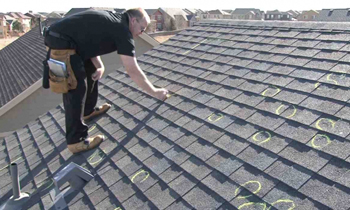
Your roof is one of the most critical components of your home, providing protection against the elements and contributing to its overall structure and value. Regular roof inspection Stockton CA are essential for maintaining its integrity and avoiding costly repairs. In this ultimate guide, we’ll cover everything homeowners need to know about roof inspections, the role of a professional roofer, and how to work with a reputable roofing company.
1. What Is a Roof Inspection, and Why Is It Important?
A roof inspection is a detailed evaluation of your roof’s condition, performed to identify any issues such as leaks, wear and tear, or structural damage.
Why it matters:
• Early Detection: Identifies potential problems before they escalate.
• Cost Savings: Prevents expensive repairs by addressing issues promptly.
• Increased Longevity: Ensures your roof lasts its full lifespan.
Pro Tip: Schedule a roof inspection at least once a year and after severe weather events.
2. How Does a Professional Roofer Conduct a Roof Inspection?
Hiring a qualified roofer ensures a thorough and accurate assessment. Here’s what you can expect during a professional inspection:
Exterior Inspection:
• Checking for missing or damaged shingles.
• Examining flashing and seals around chimneys, vents, and skylights.
• Looking for signs of moss, algae, or debris buildup.
Interior Inspection:
• Inspecting the attic for water stains or mold.
• Checking insulation for moisture.
• Evaluating ventilation to prevent heat and moisture buildup.
Pro Tip: A roofing company with experience in roof installation can offer valuable insights into long-term maintenance and potential upgrades.
3. When Should You Schedule a Roof Inspection?
Timing is everything when it comes to roof inspections. Here are the key times to schedule one:
• Annually: Regular yearly inspections help catch small issues.
• After Severe Weather: Hail, wind, and heavy storms can cause hidden damage.
• Before Roof Installation: Ensures the structure is sound before a new roof is installed.
• When Selling or Buying a Home: Provides peace of mind for both buyers and sellers.
Why it matters:
Scheduling inspections proactively reduces the risk of unexpected repairs and maintains your roof’s performance.
4. DIY vs. Professional Roof Inspections: Which Is Better?
While homeowners can perform basic visual inspections, professional roof inspections are more comprehensive and accurate.
DIY Inspections:
• Look for obvious signs of damage, such as missing shingles or sagging areas.
• Check gutters for granules, which indicate shingle wear.
Professional Inspections:
• Use advanced tools, such as drones or infrared cameras.
• Provide detailed reports with recommendations.
• Identify issues that are not visible to the untrained eye.
Pro Tip: Always rely on a licensed roofer for a detailed evaluation to ensure nothing is overlooked.
5. What Are Common Roof Problems Identified During Inspections?
Regular inspections can uncover a range of issues that, if left untreated, could compromise your roof’s integrity.
Common problems include:
• Leaks and Water Damage: Often caused by damaged flashing or missing shingles.
• Structural Issues: Sagging or uneven areas indicating underlying problems.
• Moss and Algae Growth: Can cause moisture retention and shingle deterioration.
• Ventilation Problems: Leads to energy inefficiency and moisture buildup.
• Damaged Gutters: Prevent proper water drainage, leading to roof damage.
Pro Tip: Address minor issues promptly to avoid extensive repairs or premature roof replacement.
6. How to Choose the Right Roofing Company for Inspections
Selecting the right roofing company ensures a reliable and professional inspection. Here’s how to choose the best roofer for the job:
Questions to Ask:
• Are you licensed and insured?
• How much experience do you have with roof inspections?
• Do you provide a detailed report with photos?
Why it matters:
A reputable roofing company not only conducts thorough inspections but also provides recommendations tailored to your roof’s specific needs.
Pro Tip: Read online reviews and ask for referrals from friends or neighbors to find a trustworthy roofer.
7. How Does Roof Inspection Tie into Roof Installation and Repairs?
Roof inspections are essential before and after roof installation or repairs.
Before Installation:
• Assesses the structure’s readiness for a new roof.
• Identifies any underlying damage that must be addressed first.
After Installation:
• Ensures the new roof was installed correctly.
• Verifies that all materials and components meet quality standards.
During Repairs:
• Pinpoints the root cause of the issue.
• Confirms that repairs are effective and durable.
Pro Tip: Regular inspections after roof installation Stockton CA help extend your roof’s lifespan and maintain its warranty.
8. How Much Does a Roof Inspection Cost?
The cost of a roof inspection varies depending on the size and complexity of your roof.
Typical Costs:
• Basic inspections: $100 to $300.
• Advanced inspections with tools like infrared imaging: $400 to $600.
Why it’s worth it:
Investing in professional inspections can save thousands by catching problems early and avoiding costly repairs or replacements.
Pro Tip: Some roofing companies offer free inspections as part of their services, especially if you’re considering roof repairs or installation.
9. Tips for Maintaining Your Roof Between Inspections
Regular maintenance complements professional inspections and keeps your roof in excellent condition.
Maintenance Tips:
• Clean gutters regularly to prevent water buildup.
• Trim overhanging branches to minimize debris.
• Check for visible damage after storms.
• Address minor repairs immediately.
Why it matters:
Routine care reduces wear and tear, prolonging your roof’s life and minimizing the need for frequent inspections.
Conclusion
A roof inspection is more than just a routine check-up; it’s an investment in your home’s safety, efficiency, and longevity. By working with a trusted roofing company, you can ensure that your roof remains in optimal condition, whether it’s undergoing routine maintenance, repairs, or a new installation.
Remember, an experienced roofer can provide insights that go beyond visible issues, helping you make informed decisions about your roof’s care. Don’t wait for problems to arise—schedule your next roof inspection today and protect your home for years to come.
